August 2019: Olive Tree

Volume II/Issue 40/August 2019


From The Editorial Desk
God Has A Face
The month of August is traditionally dedicated to the Immaculate Heart of Mary. It is a devotional name used to refer to the interior life of the Blessed Virgin Mary, her joys and sorrows, her virtues and hidden perfections, and, above all, her virginal love for God the Father, her maternal love for her son Jesus, and her compassionate love for all people. The heart of Mary is venerated (and not adored as the Sacred Heart of Jesus is) because it is united to her person and is the seat of her love (especially for her divine Son), virtue, and inner life. Such devotion is an incentive to a similar love and virtue in our interior life as well.
So what do we mean by the interior life? Interior life is a life which seeks God in everything, a life of prayer and the practice of living in the presence of God.
The word “presence” is almost always translating the Hebrew penae or peneme and it means “face.”
The Presence of God or the Face of God is one of deep intimacy with our Father. It is that place of knowing Him and being fully known by Him. It is that place of righteousness – where we know deeply, not just academically, that through Jesus, we are truly right with God. There is nothing separating us. We are in Him and He is in us. There are no shadows between us. It is the joy of the Lord within us. That joy that is not dependent on circumstances but is strong and sure. It is that peace that quiets our hearts and mind and gives us assurance that in Him all is well with my soul. It is in that inner place, that oneness with our Father, that we experience the Face of God. It is there that the mysteries of God are revealed. It is there that revelation comes, not by strife but by that supernatural revelation; our eyes and ears are opened our hearts receive the seed of revelation. It is in that place that one knows that prayers uttered are heard and will be answered. It is in that place we know the love of the Father and know what it is to love the Father. It is out of that union we worship in spirit and in truth. It is there that the Holy Spirit will make known to us what He receives from Jesus. It is a place of rest in God. So being in the Presence of Gods face is of utmost importance.
"For God, who commanded the light to shine out of darkness, hath shined in our hearts, to give the light of the knowledge of the glory of God, in the face of Christ Jesus." (2 Corinthians 4:6).
GOD has a face. There is a face behind this universe, a Person with ears that hear, with a mouth that speaks His Word, and with a mind that orders things, that guides and leads. Behind this magnificent universe that God has made the most wonderful thing of all is that there is Someone who can be met, Someone with a face we can get to know. The enemy of our souls hates the face of God! God's message and good news to man is that the light of this glorious glory of God is in the face of Jesus Christ. Nothing could contain God's glory like a face. God is a real Person who is seeking all the time to get to know men and women, to make His face known, so that we can know Him face to face.
Now this was known from the very beginning of mankind. The more we study archaeology, the more we trace primitive societies back to their sources, the more we track world religions back to their beginnings, the more we study the early chapters of the Bible, the more we find that behind the knowledge of man was the knowledge of God, the one God, the Creator of heaven and earth, and that men everywhere approached Him by sacrifice. It was not the earliest knowledge of man to believe in many gods, nor was it man's earliest knowledge to believe that God was a sort of something that filled everything else. The history of the human race confirms the Bible story. In the beginning God was known and worshipped as a Person, a Creator, and man could come to him on the costly price of a sacrifice.
But the god of this world wants to blind our eyes so that we might not see that face and might not know God as a Person, so it was not very long in the history of mankind before priestly men hid the truth in myths and stories, and God was locked up in temples. The one God was split into a hundred gods and in the sight of men God's face was lost. In Babylon, in Egypt, and later in Greece the polytheism of man hid the face of God.
Then came another movement. Satan was not satisfied with splitting God's face into a hundred faces. There came the reaction of Buddhism, certain forms of Confucianism, and Hinduism, and religion became god in everything as a sort of gas, a sort of misty something that was in everything. God had lost His face and people did not know where to find it. The more people looked into these things, trying to discover the face of God, the more they came to the conclusion that it did not exist, and the devil's attack moved into another stage, the stage of atheism.
What is God doing about all this? Right in the very beginnings of mankind, before pagan religion was in full control, the God of glory appeared and revealed Himself to Abraham, and Abraham discovered that God has a face, an ear, a mouth and a mind. And as Abraham listened to what God had to say, he found out God's plan. God was beginning His counter-attack which goes through Abraham, Isaac and Jacob into the history of Israel, and right on into the days of our Lord Jesus, when God appeared in the face of Jesus Christ. "If any man has seen me," says the Lord Jesus, "he has seen my Father." God was discoverable in His Personhood as man made encounter with our Lord Jesus Christ, and since that day that same God is seeking to appear to men and women, to reveal Himself to us as a Person, so that we can speak to Him face to face.
God cannot be shut up in a little box in the universe, like one of the Babylonian gods of the past, nor is He to be found up in space, as though one day we will open a door and say: 'Oh, there is God, running the controls!' Neither is God to be found by searching around for the soul of our universe, because we do not find anything there. We do not even find a misty gas that we can call God, because our God is the Creator of heaven and earth and He stands in relationship to this earth as an author does to his book. Some people look through the book and say that they cannot find the author in the story, and so they do not believe there is a God. Other people read the book and find the author's fingers on every word; they find Him terribly close, not only in the beautiful things, but also in the bad parts of the story. His fingers are still there. Many men have listened to the stories, they have heard that God is a misty something and is not a Person, and it may be that they have even become atheists, yet suddenly there is a moment when they cannot avoid the Author any more. God is there and they come to see Him, so they try to hide from Him, but God is difficult to avoid. The Author is on every page, in every experience, but we build up techniques to avoid Him. It was a little more difficult in the past, but it is so easy in the twentieth century, even for Christians, so that they do not know what God is saying, or what He wants in their lives.
There came a moment in Abraham's experience when he could not avoid God any more, and he saw Him. The God of glory appeared to him and began to draw him across the desert to the land of Canaan. When he arrived in the promised land, we read that once again the Lord appeared unto him. He knew that God was a Person, and that he had a face. Two thousand years before our Lord Jesus Christ came, Abraham was getting the good news in the face of Jesus Christ. It is good news to see God, or, rather, it should be, for one day we are all going to have to see Him. It will be a beautiful vision when our hearts will go out in worship and adoration, or else we will cover our eyes and run from the face of Him that sits on the Throne. It is the same face and the same God, but, when heaven and earth pass away and there is nothing left but the unveiled face of God which lies behind the universe, for some men it will mean heaven and for some men it will mean hell. How important it is that we see our God, that we get to know His face, in anticipation of that moment when there will be nothing to behold but the face of the Almighty.
Did I say that for some it will be glory, wonder and worship, while for some it will be destruction? That gives us a clue. Seeing God face to face always means some sort of destruction. That is why we read in verse 7 of Genesis 12. that Abraham built an altar unto the Lord who appeared unto him. That is the reaction of a man who has seen God and wants to go on seeing Him. In the next verse we read that he built another altar and called on the Name of the Lord. In verse 18 of chapter 13 we read for the third time that he built an altar unto the Lord, and in chapter 22, verse 9, we once again find Abraham building an altar. It all began with seeing the Lord, and then there was a pathway through the land of promise which was marked by altars. This is the way of the Cross, the pathway of a man who has seen his God. Abraham built four altars, and we will also find in these beginning chapters of the Bible that Isaac dug four wells, that Jacob set up four pillars, and that Joseph was involved with four sets of dreams. At this crucial point in human history God is reasserting His Personhood, revealing Himself to Abraham by the way of the Cross, to Isaac by the way of the well, to Jacob by the way of the pillars of stone, and to Joseph in a fourfold revelation. Right at the beginning of Israel's history Abraham saw the Cross, Isaac saw the gift of the Spirit (Pentecost), Jacob set up the pillar representing the ground of truth which is the Church of the living God, while Joseph revealed the Lord through his visions. This is always God's pattern of working, from Calvary to Pentecost, to the birth of the Church, to the revelation of Christ in the midst, that we might unveil His face, that we might know our God. It begins in the way of the Cross.

Feeding Ourselves Spiritually
A priest friend of mine wrote a short consideration recently: "What we need as Christians is to be able to feed ourselves. How many are there who sit helpless and listless, with open mouths, hungry for spiritual things, and a Priest or a famous Catholic Speaker has to feed them, while the Scriptures are a feast prepared, into which they never venture to spend time in or mediate on."
When we are born we are first fed milk. Soon we are fed more complex foods. Then the day comes, when we are handed the spoon and taught how to feed ourselves. As we grew older, we were taught how to use a fork and then a knife. We learned how to serve ourselves. Eventually we learned how to cook and provide for ourselves.
Spiritually we begin after Baptism as spiritual infants and are expected to grow up. "As newborn babes, desire the rational milk without guile, that thereby you may grow unto salvation: If so be you have tasted that the Lord is sweet." (I Peter 2:2-3) We begin with spiritual milk, but should grow to be ready for spiritual meat. "I gave you milk to drink, not meat; for you were not able as yet. But neither indeed are you now able; for you are yet carnal." (I Corinthians 3:2) We are expected to grow up to be spiritual and able to feed ourselves and even provide many of our meals for our own self. The Corinthians were still expecting Saint Paul to feed them from afar, when they should have learned how to feed themselves. We are expected to do the same thing.
We spend an hour a day in eating and more time in preparation. Do we spend a similar amount of time in spiritual pursuits, which feed the soul? How many of us are overeating at the table, while starving our souls, when we should cut back at the dinner table, and spend more time at the spiritual table?
A good sermon or article can be a spiritual banquet, and we should feast in this way as often as possible. However, we cannot always go to spiritual banquets elsewhere, but must prepare our own right at home. In fact, we should have a daily spiritual banquet with the Holy Trinity and the Word of God. In fact, this article is the fruit of just such a banquet at home with the Trinity.
My priest friend is urging us to grow up spiritually and stop depending on others to help us become saints. We should not ignore the helps God gives us, but He may also take them away, especially if we are too dependent on them. Let us consider this well: am I able to prepare a spiritual banquet? Can I even make a spiritual grilled cheese sandwich? In fact, can I even feed myself, if someone brings me spiritual food? Have I progressed past needing someone to feed me a spiritual bottle of milk?
"For whereas for the time you ought to be masters, you have need to be taught again what are the first elements of the words of God: and you are become such as have need of milk, and not of strong meat." (Hebrews 5:12) It is possible for us to regress and fall back. I recall when my grandmother was past 85 and went into the hospital. In the hospital, they had to feed her, because she was not up to it. She had dementia at the time. When she got back the nursing home, they advised us they wanted to get her back to feeding her own self, because if she gives this up, she will deteriorate even faster. I recall seeing her a few days before she died at age 91, sitting up and feeding her own self. We also should be feeding ourselves spiritually, until we die. We should not allow ourselves to fall back in the spiritual life. If we see ourselves doing so, let us get on a special spiritual diet to restore our spiritual heath.
What happens when we are sick? We change our diet to a simpler lighter diet. Our goal is to get back to eating normally. We know we are getting better, when we can add our regular foods back to our diet. Spiritually, when we become spiritually sick through sin, we need to chastise our body and bring it into subjection. (I Corinthians 9:27)
What does a spiritual banquet look like? When we think of banquets, we think of the worldly affairs with music, good food and drink.
Let us begin with the music. "Speaking to yourselves in psalms, and hymns, and spiritual canticles, singing and making melody in your hearts to the Lord;" (Ephesians 5:19) We find the psalms, hymns and spiritual canticles in Sacred Scripture. And notice, we are not playing Gregorian chant, but making melody in our hearts. Occasionally playing something like Gregorian chant may be helpful, but a healthy dose of silence is necessary. I silence you will possess your souls. "Therefore, behold I will allure her, and will lead her into the wilderness: and I will speak to her heart." (Osee 2:14)
Let us come to the food. For our daily bread (Luke 11:3) we must go to church to receive the Holy Eucharist. At home, we can begin feasting with a sincere Spiritual Communion. And would should partake of Spiritual Communion several times in the day. "And the tempter coming said to him: If thou be the Son of God, command that these stones be made bread. Who answered and said: It is written, Not in bread alone doth man live, but in every word that proceedeth from the mouth of God." (Matthew 4:3-4) The Word of God is part of our spiritual food, and we should feast upon this holy Word daily. The Scriptures need to become an integral part of life.
"But if it seem evil to you to serve the Lord, you have your choice: choose this day that which pleaseth you, whom you would rather serve, whether the gods which your fathers served in Mesopotamia, or the gods of the Amorrhites, in whose land you dwell: but as for me and my house we will serve the Lord." (Joshua 24:15) Scriptures such as this one should be constantly in our minds and our hearts. In fact, some have the habit of printing out Scriptures and put them on the wall. In this case one would print out: "my house we will serve the Lord."
"Thou shalt love the Lord thy God with thy whole heart, and with thy whole soul, and with thy whole strength. And these words which I command thee this day, shall be in thy heart: And thou shalt tell them to thy children, and thou shalt meditate upon them sitting in thy house, and walking on thy journey, sleeping and rising. And thou shalt bind them as a sign on thy hand, and they shall be and shall move between thy eyes. And thou shalt write them in the entry, and on the doors of thy house." (Deuteronomy 6:5-9) Notice that the Chosen People were commanded to write these words not only in their hearts and teach them to their children, but they should write them on the doors of their houses as a constant reminder to give themselves completely and without reserve to Almighty God.
"And all in Moses were baptized, in the cloud, and in the sea: And did all eat the same spiritual food, And all drank the same spiritual drink; (and they drank of the spiritual rock that followed them, and the rock was Christ.)" (I Corinthians 10:2-4) Jesus Christ provides us with our spiritual drink. Our personal relationship with Jesus Christ is the perfect addition to our spiritual banquet.
Let us conclude with an idea from the VIE Catholic Radio Station. One of the programs is named Sacred Moments. In addition to our hour of prayer, we should also have sacred moments throughout our days. It can be a minute or an hour. Some pious thought comes into our mind and we consider it and take it to heart. We can call thee sacred moments, spiritual snacks.

It's About Time
I was recently in a restaurant enjoying a meal. It was mid-afternoon, I believe, and as such there were not many people there. In fact there were only two tables occupied at the time. My table was one of them and the other table was occupied by a father along with a young woman and a young man. The girl and boy (I presume they were brother and sister) were around 15, 16, 17 years old? I am not good at guessing ages but around this age, I would imagine. As I was sitting there waiting for my food to be brought out, I could not help but notice that the brother and sister were pre-occupied with their cell phones. Now this is not really unusual, I am sure you will agree, in this day and age. But this is what I noticed as I sat there. The boy and girl were fixated on their phones. But the father did not have any cell phone with him. If he did, it was put away. Anyhow, as I mentioned the boy and the girl were constantly looking down gazing at their phones. The father was trying to make small talk with the two of them. In other words, he was trying to make conversation. At first, he would talk about the menu choices. He would ask what they wanted to eat. After the food was ordered, the father was making more small talk with his children. Now, I didn't really catch what the "small talk" was because I really was not trying to listen in on their conversation. But, honestly, at this point I was more interested in observing the reactions of the father and his two children. The father for his part was trying to speak with his children. He was trying to interact with them. For their part, the children were so focused on their phones they were not paying attention to their father at all. They were not paying attention to each other, now that I think about it. The only time the boy or the girl would look up from their phone is when they wanted something or needed something from their father. "Dad, will you order me a Coke?" "Dad, can I have a piece of pie?"
Watching this interaction . . . or lack of interaction, depending on how you look at . . . . it made me think of how we treat God sometimes. Like the two young people at the table, they did not pay attention to their father because they were too busy paying attention to their phones. They only looked up long enough when they wanted something or needed something from their father. And then they went right back to gazing at their phone. The father was being very patient with his children. He tried to make small talk. He tried to interact with them. But the more he tried to speak with them, the more they paid attention to what was capturing their attention: their phones.
How often do we treat God like this? How often do we keep busy with our lives and only go to God when we need something? In this story I just told of my experience in the restaurant, I could not help but notice how rude the children were to their father. They were not paying attention to him because they were too busy focusing on their phones. But even though their phones seemed to hold the most interest for them, this did not stop them from going to their father when they needed something or wanted something. But don't we, in essence, do the same exact thing with God? Don't we stay busy with our lives and ignore God completely until we need Him? We live our lives by going to work; taking care of our homes; going shopping; socializing; relaxing; etc. We keep busy with everything which affects us. We take care of our family. We take care of ourselves. We keep busy with all the things which occupy us on a daily basis. And more often than not, our busy schedules include everything except time for God. Time gets away from us, we tell ourselves. We don't pray. We don't read Scripture. We don't spend time with God. All because we are "too busy" and "time gets away from us." But then when we need God, all the sudden we find the time to call on Him. When something goes wrong, we turn to God when we need Him. When nothing else has worked, we run to God because we need Him. When we find ourselves at the end of the rope and have nowhere else to turn, we turn to Our Heavenly Father because we need Him. Just like those two children in the restaurant. They were too busy focusing on their phones to spend time interacting with their father except when they wanted something. Only then did they look up from their phones to speak to their father.
How many of us do the same exact thing as these young people? We keep busy with life. We keep busy with our interests. We keep busy with, what I like to call the "busy-ness" of life: working; taking care of the house; taking care of the family; running errands. But the problem with keeping "busy" is that often it also means that we are too "busy" for God. As devout, committed Christians we need to spend time with God. We need to dedicate time to God. We need to make time for God. And if we are so busy that we find we do not have time for God, then we need to make time for God. We need to prioritize our tasks and put things in order. And this means that we put God first in our life and make time for Him.

The Funny Pharmacy
A joyful mind maketh age flourishing: a sorrowful spirit drieth up the bones. - Proverbs 17:22

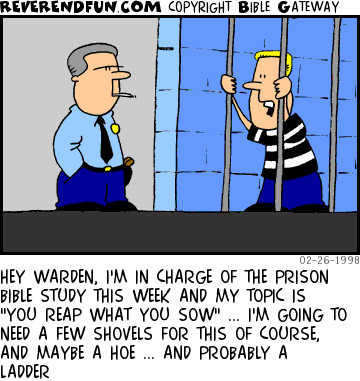





To continue the line of reasoning above since the college which elected John XXIII knew he was a heretic then they became also heretics which automatically deposed them (electors) of their authority both collectively and individually in the Church?
Some would have known of Roncalli's heresy, but some might not have known. John XXIII appointed so many to the Cardinalate, that the 1963 election could not have been valid, which is why we focused on John XXIII.

The Pope Speaks: August 2019
Important Principles From Apocalypse
Some believe we are in Apocalyptic times and have read this book of Sacred Scripture out of curiosity, trying to discern what is going to happen next in the world. While doing this, it is easy to skip over or even miss the good advice found that applies to us today, even if these are not apocalyptic times. Let us consider some of these principles.
"And they overcame him by the blood of the Lamb, and by the word of the testimony, and they loved not their lives unto death." (Apocalypse 12:11)
We love our lives unto death, when we bow to the desires of our lower nature rather than sanctifying ourselves and spending our time and effort on Almighty God and completing His holy will in our lives.
"And in their mouth there was found no lie; for they are without spot before the throne of God." (Apocalypse 14:5)
One of the marks of these times is the fact that lying has become a way of life for so many people. Some lies are excused as little white lies, when in fact they may even be mortal sins. Laxity is a sign of the times. Jesus said: "But I say unto you, that every idle word that men shall speak, they shall render an account for it in the day of judgment. For by thy words thou shalt be justified, and by thy words thou shalt be condemned." (Matthew 12:36-37)
"A fool receiveth not the words of prudence: unless thou say those things which are in his heart." (Proverbs 18:2) Another version translates this as: "A fool takes no pleasure in understanding, but only in expressing his opinion." We should only express our opinion, when it is necessary and otherwise remain silent. "A time to keep silence, and a time to speak." (Ecclesiastes 3:7) Notice that silence comes first. One of the Fathers of the Church observed that God gave us two ears and one mouth, and that we should listen more than we speak.
"And I heard another voice from heaven, saying: Go out from her, my people; that you be not partakers of her sins, and that you receive not of her plagues. For her sins have reached unto heaven, and the Lord hath remembered her iniquities." (Apocalypse 18:4-5)
When we remain in the world and conform ourselves to its perfidious maxims, we participate in her sins and become worthy of the plagues God will send upon the world. Saint Paul reminds us: "I beseech you therefore, brethren, by the mercy of God, that you present your bodies a living sacrifice, holy, pleasing unto God, your reasonable service. And be not conformed to this world; but be reformed in the newness of your mind, that you may prove what is the good, and the acceptable, and the perfect will of God." (Romans 12:1-2) We see by this that non-conformity with the world is a practice for all ages, not just those surrounding the time of Antichrist. Saint John Vianney identifies three classes of people, those who are totally worldly, those who are totally Godly, and those who want to have one foot in the world and another in the Church. This last class wants to find an easy way to heaven through Purgatory, while indulging in the pleasures of the world. They walk a tight rope of near occasions of sin, which they hope to avoid, but... Saint John then concludes, "You are either totally for God or you are totally for the world; there is no middle ground." This middle ground is actually the road to hell, which is cleverly disguised. How many who indulge in deliberate venial sin finally cross the line and commit a mortal sin? How many treading this fine line actually know where the line is between venial and mortal sin? Usually they keep moving theline further and further into the area of mortal sin, believing their own sins are mere trifles, when all sin is an offense against God.
"He, that hath an ear, let him hear what the Spirit saith to the churches:"
Throughout Apocalypse chapters two and three we read about the seven churches. And seven times we are bidden to hear what the Spirit (the Holy Ghost) has to say to the churches." Let us consider some of this sage advice.
"Because thou hast kept the word of my patience, I will also keep thee from the hour of the temptation, which shall come upon the whole world to try them that dwell upon the earth." (Apocalypse 3:10)
Notice that God will protect us in the hour of temptation, if we keep the word of patience. Patience is a common theme in Apocalypse. "Here is the patience and the faith of the saints." (Apocalypse 13:10) "Here is the patience of the saints, who keep the commandments of God, and the faith of Jesus." (Apocalypse 14:12) One would think that keeping the Commandments would go without saying, it is so reasonable, but we are often reminded of these in Sacred Scripture, because we easily turn aside from the Commandments.
"In like manner do penance: if not, I will come to thee quickly, and will fight against them with the sword of my mouth." (Apocalypse 2:16)
Jesus said: "No, I say to you: but unless you shall do penance, you shall all likewise perish." (Luke 13:3,5) The theme of penance is found throughout Apocalypse: "But I have somewhat against thee, because thou hast left thy first charity. Be mindful therefore from whence thou art fallen: and do penance, and do the first works. Or else I come to thee, and will move thy candlestick out of its place, except thou do penance." (Apocalypse 2:4-5) "Have in mind therefore in what manner thou hast received and heard: and observe, and do penance. If then thou shalt not watch, I will come to thee as a thief, and thou shalt not know at what hour I will come to thee." (Apocalypse 3:3) "Such as I love, I rebuke and chastise. Be zealous therefore, and do penance." (Apocalypse 3:19)
"And the rest of the men, who were not slain by these plagues, did not do penance from the works of their hands, that they should not adore devils, and idols of gold, and silver, and brass, and stone, and wood, which neither can see, nor hear, nor walk: Neither did they penance from their murders, nor from their sorceries, nor from their fornication, nor from their thefts." (Apocalypse 9:20-21)
Apocalypse chapters six, eight and nine describe a series of plagues and chastisements that appear t come before the reign of Antichrist. Notice after all of these chastisements from Almighty God what people don't do. People do not do penance. And so the Holy Ghost is reminding us of the necessity of penance, which begins with following the advice Jesus gave to two people: "Go now and sin no more." (John 5:14; John 8:11) We need to step away from our lives of mediocrity and a lax attitude towards sin, and get serious about becoming a saint.
"And the fourth angel poured out his vial upon the sun, and it was given unto him to afflict men with heat and fire: And men were scorched with great heat, and they blasphemed the name of God, who hath power over these plagues, neither did they penance to give him glory. And the fifth angel poured out his vial upon the seat of the beast; and his kingdom became dark, and they gnawed their tongues for pain: And they blasphemed the God of heaven, because of their pains and wounds, and did not penance for their works." (Apocalypse 16:8-11)
The pouring out of the seven vials appears to be during and after the time of Antichrist. People, who have seen all of the plagues mentioned earlier in this holy book have now seen the reign of Antichrist and the preaching of the Two Witnesses (Apocalypse 11). And yet, people have not gotten better; they have gotten worse. Now they are blaspheming Almighty God in addition to refusing to do penance for their sins.
If God wills that we actually see apocalyptic times, we need to be ready, because the trials we will see will cause many to fall away from Almighty God and join the world. Many will fall completely away from the Faith under the persecution of Antichrist, which will be the worst in human history.


Sayings of Various Saints concerning Prayer
"Man has a noble task: That of prayer and love. To pray and love, that is the happiness of man on earth." - St. Jean Marie Baptiste Vianney
"Prayer is the place of refuge for every worry, a foundation for cheerfulness, a source of constant happiness, a protection against sadness." - St. John Chrysostom
"Prayer is the inner bath of love into which the soul plunges itself." - St. Jean Marie Baptiste Vianney
"Faith furnishes prayer with wings, without which it cannot soar to heaven." - St. John Climacus
"Without prayer we have neither light nor strength to advance in the way which leads to God." - St. Alphonsus Maria de Liguori
"Many cry to God, but not with the voice of the soul, but with the voice of the body; only the cry of the heart, of the soul, reaches God." - St. Augustine
"Virtues are formed by prayer. Prayer preserves temperance. Prayer suppresses anger. Prayer prevents emotions of pride and envy. Prayer draws into the soul the Holy Spirit, and raises man to Heaven." - St. Ephraem of Syria
"Prayer is the only channel through which God"s great graces and favors may flow into the soul; and if this be once closed, I know no other way He can communicate them." - St. Teresa of Avila
"It is simply impossible to lead, without the aid of prayer, a virtuous life." - St. John Chrysostom
"We set forth our petitions before God, not in order to make known to Him our needs and desires, but rather so that we ourselves may realize that in these things it is necessary to turn to God for help." - St. Thomas Aquinas
"We meditate before, during and after everything we do. The prophet says: "I will pray, and then I will understand." This is the way we can easily overcome the countless difficulties we have to face day after day, which, after all, are part of our work. In meditation we find the strength to bring Christ to birth in ourselves and in others." - St. Charles Borromeo
"Seek by reading and you will find by meditating. Knock by praying, and it will be opened to you in contemplation." - St. John of the Cross
"In order to succeed in prayer, it should be done when we first awaken, when our whole being is calm and recollected. We need to make our meditation before anything else." - Bl. Peter Julian Eymard
"Never forget that it is at the beginning of each day that God has the necessary grace for the day ready for us. He knows exactly what opportunities we shall have to sin, and will give us everything we need if we ask him then. That is why the devil does all he can to prevent us from saying our morning prayers or to make us say them badly." - St. Jean Marie Baptiste Vianney
"Christian perfection consists in three things: praying heroically, working heroically, and suffering heroically." - St. Anthony Mary Claret
"During mental prayer, it is well, at times, to imagine that many insults and injuries are being heaped upon us, that misfortunes have befallen us, and then strive to train our heart to bear and forgive these things patiently, in imitation of our savior. This is the way to acquire a strong spirit." - St. Phillip Neri
"Prayer is nothing else than union with God. When the heart is pure and united with God it is consoled and filled with sweetness; it is dazzled by a marvelous light." - St. Jean Marie Baptiste Vianney
"Prayer ought to be humble, fervent, resigned, persevering and accompanied with great reverence. One should consider that he stands in the presence of a God, and speaks with a Lord before whom the angels tremble from awe and fear." - St. Mary Magdalen dei Pazzi
"As far as possible, you should pray in quiet silent devotion. Try to have a favourite topic of prayer, such as a devotion to the passion of Jesus, the Blessed Sacrament, awareness of the divine presence: go directly to Jesus without too much fuss." - Bl. Peter Julian Eymard
"It is an old custom of the saints of God to have some little prayers ready and to be frequently darting them up to heaven during the day, lifting their minds to God out of the mire of this world. He who adopts this plan will obtain great fruits with little pain." - St. Phillip Neri
"Have confidence in prayer. It is the unfailing power which God has given us. By means of it you will obtain the salvation of the dear souls whom God has given you and all your loved ones. "Ask and you shall receive", Our Lord said, be yourself good with the Lord." - Bl. Peter Julian Eymard
"We should to keep our hearts open to the sufferings and wretchedness of other people, and pray continually that God may grant us that spirit of compassion which is truly the spirit of God." - St. Vincent de Paul
"What souls we can convert by our prayers. The one who saves a soul from hell saves this soul and his own as well." - St. Jean Marie Baptiste Vianney
"What prayer could be more true before God the Father than that which the Son, who is truth, uttered with his own lips." - St. John Chrysostom
"Much more is accomplished by a single word of the Our Father said, now and then, from our heart, than by the whole prayer repeated many times in haste and without attention." - St. Teresa of Avila
"He who prays most receives most." - St. Alphonsus Maria de Liguori
"My little children, your hearts, are small, but prayer stretches them and makes them capable of loving God. Through prayer we receive a foretaste of heaven and something of paradise comes down upon us. Prayer never leaves us without sweetness. It is honey that flows into the soul and makes all things sweet. When we pray properly, sorrows disappear like snow before the sun." - St. Jean Marie Baptiste Vianney
"It is not enough to pray only with the tongue: we must, according to the Apostle, pray also with the heart if we wish to receive God"s graces: 'Praying at all times in the spirit.'" - St. Alphonsus Maria de Liguori
"There are those who lose themselves in prayer, like fish in water, because they are absorbed in God. There is no division in their hearts. How I love those noble souls." - St. Jean Marie Baptiste Vianney

Saints from East and West
Saints whose feasts are celebrated this month
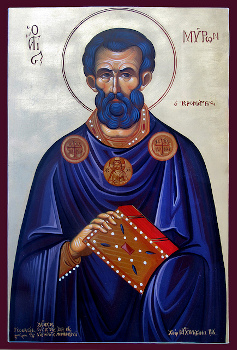
August 17 (Byzantine) - Holy Hieromartyr Myron
The Holy Martyr Myron was a presbyter in Achaeia (Greece), and lived during the third century. He suffered in the year 250 under the emperor Decius (249-251). The presbyter was gentle and kind to people, but he was also courageous in the defense of his spiritual children. One time, on the feast of the Nativity of Christ, he was celebrating Divine-services. The local governor Antipater came into the church with soldiers so as to arrest those praying there and to subject them to torture. Seeing this, Saint Myron began heatedly to plead for his flock, denouncing the governor for his cruelty. The saint was delivered over to torture, -- they took him and struck at his body with iron rods. They then threw the presbyter into a red-hot oven, but the Lord preserved the martyr - at the very moment when about 150 men at a nearby pagan temple were scorched by the oven fire. The governor then began to demand the martyr to worship idols. Having received from Saint Myron a firm refusal, Antipater ordered the leather thongs to be cut from his skin. Saint Myron took one of the leather thongs and threw it in the face of his tormentor. Falling into a rage, Antipater gave orders to strike Saint Myron all over his stripped body, and then to deliver the martyr over to wild beasts for devouring. But the beasts would not touch him. Perceiving himself defeated, Antipater in his blind rage committed suicide. They then took Saint Myron to the city of Kizika, where he was beheaded by the sword (+250).
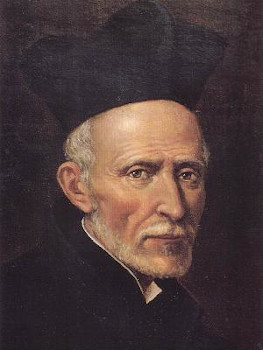
July 27 - St. Joseph Calasanctius
Joseph Calasanctius was the youngest of five children borne by Maria Gaston to her husband Pedro Calasanz. He was born in his father's castle near Peralta de la Sal in Aragon in the year 1556, and in due course was sent to study the humanities at Estadilla, where his virtue and religious observances were regarded with considerable disrespect by his fellow-students. His father wanted him to be a soldier, but Joseph had other ideas and induced Don Pedro instead to send him to the University of Lerida, where he took his doctorate in law before going on to Valencia. It is said that he left this university in order to escape the attentions of a young kinswoman, who subjected him to a temptation similar to that undergone by his namesake many centuries before at the court of Pharaoh; certainly he continued his theology at Alcala, and in 1583 he was ordained priest, being already twenty-eight years old. Soon the fame of Joseph's wisdom, learning, and goodness was spread abroad, and after varied experience he was appointed by the bishop of Urgel vicar general of the district of Trempe. He was so successful here that he was sent to deal with the Pyrenean part of the diocese, which comprises the valleys of Andorra of which the bishop of Urgel was joint sovereign prince (he still holds the title) as well as ordinary. This lonely and inaccessible region was in a terrible state of religious and moral disorder, and St Joseph conducted a long and arduous visitation of which the first task was to bring the clergy to a sense of their responsibilities and obligations; on its completion he returned to Trempe and remained there until he was made vicar general of the whole diocese. But for some time Joseph had been listening to an interior call to undertake a quite different sort of work; at length he resigned his office and benefices, divided his patrimony between his sisters and the poor, reserving a sufficient income for himself, endowed several charitable institutions, and in 1592 left Spain for Rome.
Here Joseph met an old friend of Alcala, Ascanio Colonna, already a cardinal, and for five years he was under the direct patronage of the Colonnas. During the plague of 1595 he distinguished himself by his devotion and fearlessness, and entered into a holy rivalry with his friend St Camillus of Lellis as to who should expend himself the more freely in the service of the sick and dying. But during these years St Joseph never lost sight of the work which had drawn him to Rome, namely, the instruction of young children, of whom there were so many, neglected or homeless, in the most urgent need of interest and care. He had become a member of the Confraternity of Christian Doctrine, whose business it was to teach both children and adults on Sundays and feast-days, and in so doing was brought home vividly to St Joseph the state of degradation and ignorance in which so many of the children of the poor lived. He was soon convinced that periodical instruction was utterly inadequate to cope with the situation; and that free day-schools for both religious and secular education were required. He therefore first of all invited the official parish-schoolmasters to admit poor pupils to their schools without payment, but they would not undertake the extra work without a rise in salary, and this the Roman senate refused to grant. He approached the Jesuits and the Dominicans, but neither order could see a way to extending its activities, for their members were already fully engaged. St Joseph then came to the conclusion that it was God's will that he should begin the work himself, single-handed if necessary. Don Antonio Brendani, parish-priest of Santa Dorotea, offered him the use of two rooms and his own services, two more priests joined them, and in November 1597 a public free school was opened.
At the end of a week the school had a hundred pupils and before long many more, and the founder had to engage paid teachers from among the unbeneficed clergy of the city. In 1599 it was moved into new quarters and St Joseph obtained permission from Cardinal Ascanio to leave the Colonna household and take up his residence on the school premises with the other masters; they lived a quasi-community life and the founder acted as superior. During the following couple of years the pupils increased to seven hundred, and in 1602 another move was made, to a large house adjoining the church of Sant' Andrea della Valle. While hanging a bell in the courtyard St Joseph fell from a ladder and broke his leg, an accident the effects of which were a source of lameness and pain for the rest of his life. Pope Clement VIII having made a grant towards the rent, and people of consequence having begun to send their children to the school, the parish-schoolmasters and others began to criticize it with some vehemence; complaints of its disorders were made to the pope and he directed Cardinals Antoniani and Baronius to pay it a surprise visit of inspection. This was done and as a result of their report Clement took the institution under his immediate protection. In similar circumstances the same course was taken and the grant doubled in 1606 by Paul V. But these difficulties were the beginning of trials and persecutions which beset St Joseph until the end of his life. Nevertheless during the succeeding five years the work prospered and grew in spite of all opposition, and in 1611 a palazzo was purchased to house it near the church of San Pantaleone; there were about a thousand pupils, including a number of Jews whom the founder himself invited to attend and encouraged by his kindness. Other schools were opened, and in 1621 the teachers were recognized as a religious order, of which St Joseph was named superior general. He did not let the cares of the generalate diminish either his religious observances or his care for the needy, the sick, and any to whom he could be of service. About this time there came to Rome, with his wife and family, an English gentleman, Mr Thomas Cocket, who by abjuring Protestantism had brought himself within reach of the penal laws; him the saint assisted, and the pope followed his example. assigning a pension to the refugee converts. For ten years the congregation continued to prosper and extend, and spread from Italy into the Empire.
In 1630 was admitted to the institute at Naples one Mario Sozzi, a middle-aged priest, who in due course was professed. For several years his froward and perverse behaviour made him a great nuisance to his brethren but, having by a show of zeal gained the good will and influence of the Holy Office, he contrived to get himself, in 1639, made provincial of the Clerks Regular of the Religious Schools in Tuscany, with extraordinary powers and independence of the superior general. He proceeded to administer the province in the most capricious and damaging way, harmed as much as he could the reputation of St Joseph with the Roman authorities, and at length denounced him to the Holy Office. Cardinal Cesarini, as protector of the new institute and in order to vindicate Joseph, ordered Father Mario's papers and letters to be seized; these included some documents of the Holy Office and that congregation, spurred on by Sozzi, straightway had St Joseph arrested and carried through the streets like a felon. He was brought before the assessors and only saved from imprisonment by the intervention of Cardinal Cesarini. But Father Mario was unpunished, and continued to plot for control of the whole institute, representing St Joseph to be too old and doddering for the responsibility; he managed by deceit to get him suspended from the generalate and contrived that a visitor apostolic be appointed who was favourable to himself. This visitor and Father Mario became in effect in supreme command, and St Joseph was subjected by them to the most humiliating, insulting and unjust treatment, while the order was reduced to such confusion and impotence that the loyal members were unable to persuade the superior authorities of the true state of affairs.
Towards the end of 1643 Mario died and was succeeded by Father Cherubini, who pursued the same policy. St Joseph bore these trials with marvellous patience, urging the order to obey his persecutors for they were de facto in authority, and on one occasion sheltering Cherubini from the violent opposition of some of the younger fathers who were indignant at his treachery. The Holy See had some time previously set up a commission of cardinals to look into the whole matter, and at length in 1645 it ordered the reinstatement of St Joseph as superior general; this announcement was received with great joy but led at once to renewed efforts on the part of the malcontents, who had the support of an aggrieved female relative of the pope. They were successful, and in 1646 Pope Innocent X published a brief of which the effect was to make the Clerks Regular of the Religious Schools simply a society of priests subject to their respective bishops. Thus in his ninetieth year St Joseph saw the apparent overturning of all his work by the authority to which he was so greatly devoted and the indirect disgrace of himself before the world; when the news was brought to him he simply murmured, "The Lord gave and the Lord hath taken away. Blessed be the name of the Lord."
The business of drawing up new constitutions and regulations for the shattered institute of Religious Schools was entrusted to Father Cherubini, but within a few months he was convicted by the auditors of the Rota of the maladministration of the Nazarene College, of which he was rector. He retired from Rome in disgrace, but returned in the following year to die, repentant of the part he had played and reconciled to St Joseph, who consoled him on his death-bed. A few months later, on August 25, 1648, St Joseph himself died, and was buried in the church of San Pantaleone; he was ninety-two years old. There is an obvious parallel between this history and that of St Alphonsus Liguori and the early days of the Redemptorists, and during the troubles of his young congregation St Alphonsus used to encourage and fortify himself by reading the life of St Joseph Calasanctius; he was canonized in 1767, six years before the death of Alban Butler, who only gives to him a brief notice, wherein he is referred to as "a perpetual miracle of fortitude and another Job" - a comparison made by Cardinal Lambertini (afterwards Pope Benedict XIV) before the Congregation of Sacred Rites in 1728. The failure of St Joseph's foundation was only apparent. Its suppression was strongly objected to in several places, and it was reconstituted with simple vows in 1656 and restored as a religious order in 1669. Today the Clerks Regular of the Religious Schools (commonly called Piarists or Scolopi) flourish in various parts of the world.


Books to feed your faith!
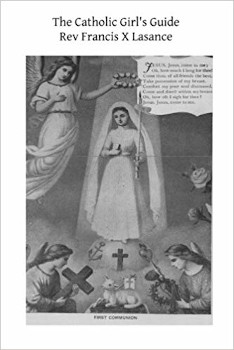
The Catholic Girl's Guide: Counsels and Devotions for Girls in the Ordinary Walks of Life
$17.95
The exhortations or instructions which constitute the principal part of this work were originally conferences which I, in my character of chaplain to a young ladies' Institute, gave to girls between fifteen and twenty years of age. The following are the reasons which led me to place them before the public. In the first place, I felt that the conferences would be of more permanent utility to the girls who heard them, if they could he read by them afterward in print. In the second place; I knew that if these instructions were published, whatever beneficial influence they might have would no longer be restricted to those who were present when they were delivered, since they would become to a greater or less extent the common property of a far wider circle of Catholic girls, in equal need of counsel and instruction. And my third reason was that amongst all the numerous and excellent instructive Manuals and Prayer-Books for Catholic girls there is not, to my knowledge, a single one that treats of the spiritual life of a young girl in so comprehensive and detailed a manner as is done in these pages.
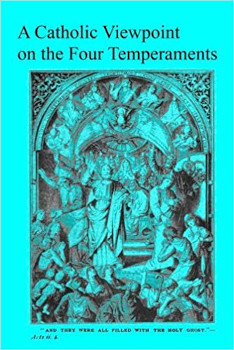
A Catholic Viewpoint on the Four Temperaments
$9.99
This is a compilation of information from several older works, which have been brought together to explain this most important consideration in the spiritual life. We begin with a short consideration from Father Scaramelli, who died in 1752. He wrote a four volume work, Directorium Asceticum, which is an excellent treatise on the spiritual life. He touches on the four temperaments briefly. We will expand with the thoughts of Father John Henry Schagemann CSSR from his work, Manual of Self-Knowledge and Christian Perfection. This work is in two parts the first on the Four Temperaments and the balance is a excellent summary of the spiritual life. The first part of this 1913 work is reproduced here. The balance of this work is inspired by Konrad Hock, who wrote The Four Temperaments. There is a great deal of interest in self-examination in these days and the four temperaments are a great guide to understanding ourselves, our strengths and our weaknesses. Some misuse this information in order to find an excuse for sin, but there is no excuse for sin. Knowing our temperament, we can know where our strengths and weaknesses lie and with the help of God over come our weaknesses and build upon our strengths The four temperaments are based upon the four humors ancient philosophers believed exist in the human body: Melancholy, (Melancholic) Phlegm, (Phlegmatic) Blood (Sanguine), Choler (Choleric or Bilious). We begin with a test to determine our temperament, so we can know where we stand entering into our study.
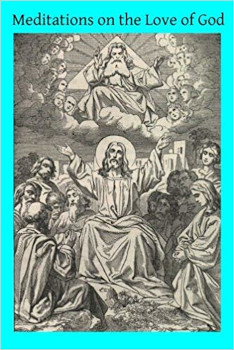
Meditations on the Love of God
$12.95
DIEGO DE ESTELLA, the author of the work from which the following pages have been translated, was born A. D. 1524, at Estella, in the Kingdom of Navarre. In due course he assl.uned the cowl of the Order of S. Francis, as one of the Friars Minor of the Regular Observance, at Salamanca. He was appointed Royal Preacher, Adviser and Theologian to King Philip II., and became Confessor to Cardinal Granvela. To his pen we owe, besides several works in Latin, the following written in Spanish: 1. De la vanidad del mundo; 2. Meditaciones del Amor de Dios; 3. La vida y excelencias de san Juan Evangelista. The first of these works was one of the very few books recommended by Dona Oliva de Sabuco; the second is the subject of the present translation. Diego died at Salamanca, 1st August, 1578, aetat. fifty-four. ALL Thy creatures declare to me, O Lord, that - I should love Thee, and in everyone of them I discover a tongue which proclaims Thy goodness and greatness. The beauty of the heavens, the brightness of the sun and moon, the effulgence of the stars, the splendour of the planets, the currents of the waters, the verdure of the fields, the diversity of flowers, the variety of colours, and all that Thy divine hands have made, O God of my heart and Spouse of my soul, tell me that I should love Thee. Everything that I see invites me to Thy love, and reproaches me when I love Thee not. I cannot open my eyes without beholding preachers of Thy most exalted wisdom! I cannot open my ears without hearing those who proclaim Thy goodness; for everything that Thou hast made tells me, O Lord, what Thou art.
For More Good Traditional Catholic Books:


Chiles Rellenos

Ingredients
4 poblano peppers
1 teaspoon salt
2 cups cotija, mozzarella, or monterey jack cheese, divided
1 cup all-purpose flour
1/2 cup vegetable oil for frying
2 eggs, separated
Directions
Set oven rack about 6 inches from the heat source and preheat the oven's broiler.
Bring a pot of lightly salted water to a boil. Prepare a large bowl of ice water.
Place poblano peppers on a baking sheet. Broil until skin bubbles and areas of burned skin appear. Dip peppers into boiling water for about 30 seconds, then place immediately into ice water. When peppers are chilled, remove skin. Slit peppers lengthwise and remove veins and seeds.
Stuff each pepper with 1/4 the cotija cheese and secure pepper openings closed with toothpicks. Place flour into a shallow bowl and dip each pepper in the flour; set aside for coating to set.
Heat vegetable oil in a large skillet over medium heat.
Beat egg whites in a glass or metal bowl until stiff peaks form. Lift your beater or whisk straight up: the tip of the peak formed by the egg whites should stand up. Gently whisk egg yolks into whites. Dip floured peppers into egg mixture to coat.
Fry peppers in the hot oil until browned and the cheese has melted, flipping once, about 5 minutes per side.
Father's Favourite Flatbread

Ingredients3 to 3 1/4 cups (361g to 390g) All-Purpose Flour
1 1/4 cups (283g) boiling water
1/4 cup (43g) potato flour or 1/2 cup (43g) dried potato flakes
1 1/4 teaspoons salt
2 tablespoons (25g) vegetable oil
1 teaspoon instant yeast
Directions
Place 2 cups of the flour into a bowl or the bucket of a bread machine. Pour the boiling water over the flour, and stir until smooth. Cover the bowl or bucket and set the mixture aside for 30 minutes.
In a separate bowl, whisk together the potato flour (or flakes) and 1 cup of the remaining flour with the salt, oil and yeast.
Add this to the cooled flour/water mixture, stir, then knead for several minutes — by hand, mixer or bread machine — to form a soft dough. Add additional flour only if necessary; if kneading by hand, keep your hands and work surface lightly oiled. A 5-minute knead in the bread machine, once it gets up to full kneading speed, is fine. Let the dough rise, covered, for 1 hour.
Divide the dough into 8 pieces (each about the size of a large plum, around 3 ounces), cover, and let rest for 15 to 30 minutes.
Roll each piece into a 7" to 8" circle, and dry-fry them (fry without oil) over medium heat for about 1 minute per side, until they're puffed and flecked with brown spots. Adjust the heat if they seem to be cooking either too quickly, or too slowly; cooking too quickly means they may be raw in the center, while too slowly will dry them out.

Video sermons and instructions: Timeless timely truths for living the Faith
The Necessity of Mortification
Assumption 2012
Show Me Your Scars
What are the Ten Commandments?

NEW! "OUR DAILY PASSION" PODCAST

“I am nailed to the cross with Christ. nevertheless I live; yet not I; but Christ liveth in me.” (Galatians 2:20)
It is only when the 'I' is crucified that Christ can manifest Himself within us. The Holy Spirit transforms us into the image of Christ day by day, and year by year, But the pathway of transformation into the image of Christ is via the PASSION of the cross. “If any man will come after me, let him deny himself, and take up his cross daily, and follow me.” (Luke 9:23) If we through the Spirit, allow the passion of the cross to put to death our self-life, we shall know the abundance of Christ's life, not otherwise.
We at OUR DAILY PASSION Podcast desire to help others die to self and live for God daily through our Sermons, Devotionals, Scripture Studies, and Catechism Lessons that come from a Catholic perspective!
To listen and/or subscribe, click here to go to the podcast site: https://pod.co/our-daily-passion


 VIE CATHOLIC RADIO EVENTS FOR AUGUST
VIE CATHOLIC RADIO EVENTS FOR AUGUST
National Radio Day is approaching on Tuesday, August 20. And to celebrate, VIE Catholic Radio is doing a weeks worth of special programming, August 19th through the 24th that is dedicated to celebrating and remembering Catholic radio programs that either went off the air or changed their format over the years. Not only radio programs but we will remember the Saints of the past who proclaimed the gospel...even before there was a radio!
Radio Programs that are being highlighted the week of the 19th of August include:
Sunday Sermon:
You can listen to five Sunday Sermons, including one by Saint Alphonsus, and Saint John Vianney each day that could cause permanent life changes by stepping on your toes!
Life Is Worth Living:
Fulton Sheen's renowned and inspiring television series was watched by millions of viewers from all walks of life and every religious belief. His timeless insights give wise, personal and inspiring guidance on the problems affecting our lives in today’s world. His talks cover an amazing variety of subjects, from the character of the Irish to the handling of teenagers. He discusses education, Christianity, relativity, and world affairs. He speaks about love, conscience, fear, motherhood, work. He tells amusing anecdotes, recites poetry, and ponders the fate of the free world as well as America’s destiny.
Fulton Sheen's Catechism:
...is a 50 part series on the fundamental teachings of the Catholic Church recorded in 1965 in the privacy of his own study. This Catechism program is truly priceless! Fulton Sheen's captivating voice and message comes through loud and clear, even for today.
Family Theater:
Family Theater is a dramatic radio show which was produced by Family Theater Productions, a film and radio studio extension of the Family Rosary Crusade founded by the Holy Cross Priest, Father Patrick Peyton, CSC, as a way to promote family prayer. The motto of Holy Cross Family Ministries is "The family that prays together stays together."
The Bible Comes Alive:
Your Story Hour produces family-friendly radio dramas based on the Bible, historical heroes, and true-to-life adventures. Our stories--brought to life by talented voice actors, descriptive sound effects and compelling music--teach Christian values, positive character traits and principles for good decision-making.
Ranger Bill:
Ranger Bill is a Christian radio program from the 1950s. Ranger Bill stars Miron Canaday as the title character and Stumpy Jenkins. And Ed Ronne Sr. as Grey Wolf. The main character, Ranger Bill, is a forest ranger located in the town of Knotty Pine along the Rocky Mountains. The show describes the various tales of the adventures of Ranger Bill and his friends
Father Charles Coughlin:
In today's America, Father Coughlin would be considered somewhat of a paradox. Although many of his estimations – such as fiscal irresponsibility causing the Great Depression – have been deemed by history as accurate, his unwavering faith in God and the Catholic religion would work to make him a social pariah whom no one would take seriously when voicing political advice.
The bygone era in which Coughlin's voice was heard the clearest seems thousands of years removed from modern society, yet remains so close you can almost hear the cries of war and hunger if you choose to listen carefully.
There will never be another Father Coughlin in America, or the entire world. His is a long-dead voice in a free country, rarely resurrected by those who wish to harness the power of his commitment and dedication.
Keys To The Kingdom:
This is the story of a man who served God in the way God wishes to be served, with humility. Of necessity this is a short story of a long, full life, a vision in to the heart of a priest swiftly blurring. In the eyes of God this man might be a saint, in the eye of the church memory of his work might not survive his modest epitaph but in the hearts of some men there was the certainty that he’d receive the keys to the kingdom of heaven...
The Greatest Story Ever Told:
Throughout the tumult of two thousand years a story has lived, a story of a man whose influence was widespread, whose life affected many people then and now. Many people called him the master, his friends worshipped him, and his enemy feared him. From a humble beginning to a world shaking end the greatest life ever lived has come down through the centuries as the greatest story ever told. Such was the effect of The Greatest Story Ever Told that during its first year on the air it won many awards and was enthusiastically received by clergy men of all denominations.
This religious drama is filled with compassion and significance as it tells the story of the life of Jesus and was undoubtedly ambitious for its time, having a full orchestra as well as a sixteen-voice chorus.
Father Flanagan Boys Town:
Have you ever met a really bad boy? You may think you have, but I'll wager you've never met any like the fire breathing little demon like in our story tonight. That's Eddie. In the opposite corner is a tall, grey haired man who has spent a lifetime believing that there is some good in everybody. That's Father Flanagan. Then he meets Eddie... It's one of the greatest stories you've ever heard.
Hour of St. Francis:
“The Hour of St. Francis” is a radio program that began in December of 1946 and continued through the 1950s. Each fifteen minute episode presented a dramatic story — often a “modern day parable” which looked at a moral issue or a particular virtue. The Hour, sponsored by the Third Order of St. Francis, was founded on the belief that sound Catholic teaching and religious inspiration can be combined with entertainment. It was the project of Fr. Hugh Noonan, O.F.M., of St. Joseph’s Church in Los Angeles. He wanted stories that tackled practical problems of modern men and women.
Eternal Joan:
The Eternal Joan is CBS Radio Theater’s adaptation for radio of the story of Joan of Arc. Joan D’Arc, a young peasant girl not yet 19 years old was burnt at the stake in the French city of Orléans on the 30th May 1431 by the English occupation in France for her part in the fight against the English occupation of France. She claimed that the voice of God was instructing her to take charge of her country’s army and lead it to victory. In 1456 she was cleared of all the accusations against her and several hundred years later in 1920 she was officially declared a saint.
Support from listeners like you make content like this possible. Why not Celebrate along with us and take a moment to support us by sending a donation to help us keep sharing with you good tradition Catholic programming to help you grow in your faith.

Remarkable Hummingbirds!
One of the delights of having lived in North Florida was being able to watch the hummingbirds. As soon as you see these remarkable little birds for yourselves, you know you have to attract them to your yard. When I lived in Pensacola Florida, I invested in feeders and kept them topped up with sugar solution through the summer months. Sometimes we would leave the kitchen door open and put a mason jar with fresh flowers on the kitchen table. They would continually fly in and hover over the flowers to get what nectar they could. Two species seemed to predominate in our garden – the orange-bellied Rufous and the beautiful, iridescent green Anna’s hummingbird.
Of course, nothing previously seen on the TV screen could prepare me for the delight of watching the little creatures fly backwards as they finished feeding. They rarely landed, so we had no view of their wings, which move so fast that they are just a blur.
Normally, when a bird’s wings upstroke, this is simply to get the wings back in position for another downstroke. Hummingbirds are different. Both strokes have power. The amazing way in which hummingbirds beat their wings uses a huge amount of energy for such a tiny bird. In fact, it has been estimated that hummingbirds need an energy input, which, if scaled up to human dimensions, would be the equivalent of us eating 1,300 hamburgers a day! So much energy would be produced that we would actually catch fire!
It should be obvious that the mechanisms required to cope with such energy changes could not have evolved by chance. The little hummingbird is a wonderful example of God’s design.

Catechism Catch-Up
The Resurrection of the Dead
Our bodies will be raised physically and materially. Our souls will be reunited with our transformed physical bodies, brought back to life from the dead.
First, simply to speak of a "resurrection" of the dead is to imply physicality:
For in the resurrection they neither marry, nor are given in marriage, but are as the angels of God in heaven. But as touching the resurrection of the dead, have ye not read that which was spoken unto you by God, saying, I am the God of Abraham, and the God of Isaac, and the God of Jacob? God is not the God of the dead, but of the living. (Matthew 22:30-31)
...for recompense shall be made thee at the resurrection of the just. (Luke 14:14)
In a moment, in the twinkling of an eye, at the last trumpet: for the trumpet shall sound, and the dead shall rise again incorruptible: and we shall be changed. (1 Corinthians 15:52)
For the Lord himself shall come down from heaven with commandment, and with the voice of an archangel, and with the trumpet of God: and the dead who are in Christ, shall rise first. Then we who are alive, who are left, shall be taken up together with them in the clouds to meet Christ, into the air, and so shall we be always with the Lord. (1 Thessalonians 4:16)
Second, Philippians 3:20-21 teaches us that Christ's resurrection body is the pattern of our resurrection body:
But our conversation is in heaven; from whence also we look for the Saviour, our Lord Jesus Christ, Who will reform the body of our lowness, made like to the body of his glory... (Philippians 3:30-21)
We know that Christ was raised in a physical body because the disciples ate with Him after the resurrection:
Not to all the people, but to witnesses preordained by God, even to us, who did eat and drink with him after he arose again from the dead; (Acts 10:41)
We know that Christ was raised in a physical body because the disciples touched Him.
And behold Jesus met them, saying: All hail. But they came up and took hold of his feet, and adored him. (Matthew 28:9)
Then he saith to Thomas: Put in thy finger hither, and see my hands; and bring hither thy hand, and put it into my side; and be not faithless, but believing. (John 20:27)
Also, Jesus outright declared that His resurrection body was physical and touchable:
See my hands and feet, that it is I myself; handle, and see: for a spirit hath not flesh and bones, as you see me to have. (Luke 24:39)
This same God hath fulfilled to our children, raising up Jesus, as in the second psalm also is written: Thou art my Son, this day have I begotten thee. And to shew that he raised him up from the dead, not to return now any more to corruption, he said thus: I will give you the holy things of David faithfull. And therefore, in another place also, he saith: Thou shalt not suffer thy holy one to see corruption. For David, when he had served in his generation, according to the will of God, slept: and was laid unto his fathers, and saw corruption. But he whom God hath raised from the dead, saw no corruption. (Acts 13:33-37).
Since Christ's resurrection is the pattern of our resurrection, we will therefore be raised in a physical body as well.
Third, Romans 8:21-23 speaks of waiting for "the redemption of our bodies":
Because the creature also itself shall be delivered from the servitude of corruption, into the liberty of the glory of the children of God. For we know that every creature groaneth and travaileth in pain, even till now. And not only it, but ourselves also, who have the firstfruits of the Spirit, even we ourselves groan within ourselves, waiting for the adoption of the sons of God, the redemption of our body. (Romans 8:21-23)
Our bodies are not going to be thrown away. They are going to be renewed, restored, revitalized.
Fourth, Jesus speaks of the resurrection as involving the coming forth of individuals out of their tombs, which clearly indicates a physical concept of the resurrection:
Wonder not at this; for the hour cometh, wherein all that are in the graves shall hear the voice of the Son of God. And they that have done good things, shall come forth unto the resurrection of life; but they that have done evil, unto the resurrection of judgment. (John 5:28-29)
Fifth, the Old Testament speaks of the resurrection as being physical:
And many of those that sleep in the dust of the earth, shall awake: some unto life everlasting, and others unto reproach, and shame. (Daniel 12:2)
I know that my Redeemer liveth, and in the last day I shall rise out of the earth. And I shall be clothed again with my skin, and in my flesh I will see my God. Whom I myself shall see, and my eyes shall behold, and not another: this my hope is laid up in my bosom. (Job 19:25-27)
READ MORE FROM THE TRADITIONAL CATECHISM AT THE WEBSITE: https://www.traditionalcatechism.com

Living Catholic:

How Can I Gain And Keep The Hearts Of My Children?
Sharing struggles and resolving conflicts
Before we can keep the hearts of our children, we must win their hearts. For a parent to have won a child’s heart is to have openness with him in which he feels secure in sharing his thoughts, ideas, and dreams, and is confident that he will be valued and accepted.
The actions and attitudes involved in winning a child’s heart will be unique to each child, but it often begins with the parents’ decision to invest whatever is necessary to build this close, God-honoring relationship with the child. Once established, the relationship needs to be cultivated, just like any close friendship. The following ideas give insights into building and maintaining these relationships.
Resolve Anger Problems
Disciplining in anger can severely damage our relationship with our children. “You know, my dearest brethren. And let every man be swift to hear, but slow to speak, and slow to anger. For the anger of man worketh not the justice of God.” (James 1:19–20).
Keep in mind that discipline is a correction for the future good of the child, not a punishment for a past transgression. Think of how God disciplines each one of us. He does it out of a heart filled with genuine love, not anger. He never gives us the punishment that we justly deserve, but He is merciful. In disciplining our children, it is the loving relationship that will make it effective.
Do Not Discourage Your Children
”Fathers, you must not rouse your children to resentment, or you will break their spirits.” (Colossians 3:21). Even though we have good intentions, sometimes we alienate our children because our expectations for them are so high. We make unrealistic demands on them and expect them to be perfect in every area. When they fail, we are too harsh and critical of them.
It is important for us as parents to yield our personal rights and expectations of perfection to God. We need to constantly be reminded that we are all on a journey, moving one step at a time. We can encourage our children to do right without making it seem overwhelming or impossible.
Share Your Struggles
It is helpful for children to know that their parents have struggles as well. We need to admit when we are wrong, share our failures with them, and ask for their prayers. As we admit our failures and ask for forgiveness, we will influence our children to do the same. As parents, we are to be the mature ones, and taking responsibility for shortcomings has to begin with us.
Resolve Conflicts
Allows each party to share the most pressing issue on his heart with an attitude of meekness and self-control. try to provide a peaceful way to work through the situation so that there are changed attitudes and actions in the future.
Restore Broken Relationships
If the parent/child relationship has been damaged, it can be restored. The first step would be to regain the child’s heart. There must be a willingness to do whatever it takes to get it back—whether it requires money, a change in a job, relocation, taking time off, making major changes in our own lives, or days of prayer and fasting.
Children often give their hearts to their friends, because their friends will take the time to listen to them. Make it a priority to hear what they have to say. Whatever is important to our children should be important to us. We have to give them our time—there is no shortcut, no quick fix. It simply takes time.
When a relationship seems strained, it is time to draw closer together rather than farther apart. Although the tendency is to send a child to his room, it would be better to spend time together in an environment that is not stressful. Have him come along on errands, read a book together, take a walk, go for ride, or spend time talking about his interests.
Damaged relationships are very fragile and must be handled with gentleness and sensitivity. It is wise to limit corrections to those that are absolutely necessary. Do not constantly remind them about things that need to change in their lives, but love them unconditionally.
Questions to ask yourself:
- Do I have an angry spirit?
- Do I take the first step to humble myself and ask forgiveness?
- Am I willing to do whatever it takes to win the heart of my child?
To Learn More Principles For Life Go To: Resources: Principles of Life

Pray for the Holy Father! Pray with the Holy Father!
-
Your prayers are asked this month and every month for the intentions of the Holy Father, Pope Michael.
-
Transportation difficulties! Last month we asked for prayers for our transmission problems. The manufacturer has replaced the transmission for free. Let us offer a prayer of thanks to Almighty God, Who blesses us so much.
-
Keep us in your prayers as we begin our new Daily Passion podcast, a new way to reach out in the missionary work of the Church! We ask for prayers for our other activities world wide. We have made good contacts in the Philippines and Japan and ask prayers that these contacts will bear much fruit for the salvation of souls.
-
Be sure to keep the new foundation of St. Helen Catholic Mission in your prayers. Why not go on over to the site now and see what they have to offer and how you might be able to help!
-
Also we ask you to keep in prayer for our New Mission: St. Ignatius of Antioch in Arkansas City, Kansas.
-
Your prayers are asked for Father Francis Dominic as he embarks upon the important work entrusted to him within the Church.
-
Pray for those outside the Church and those who do not know God, that they may see the light of grace and be led safely home to the refuge of the Holy Catholic Church.
-
As always, we also ask that you pray for yourself! Never forget your own state of soul. God is calling you to His service in His love. We know that our Lord can count on you to answer.
-
We are all praying especially for you, too. May you correspond with every grace of God!
-
In what other needs or intentions may we pray for you? Let us know!
-
Let us remember that the Church runs on prayer. Without your prayers, God will not work in hearts and souls to bring them to a knowledge of the truth. (I Timothy 2:4)



To Donate by Mail:
Our address is
Vatican in Exile
829 NE Chester
Topeka, Kansas 66616
Make Checks payable to:
Vatican in Exile


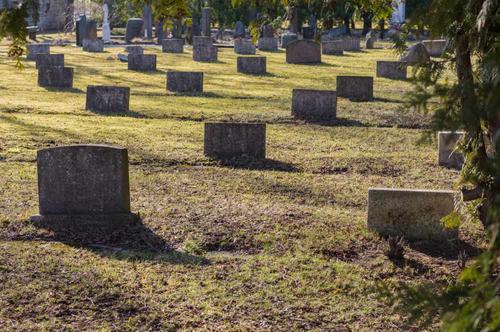




 Follow
Follow


